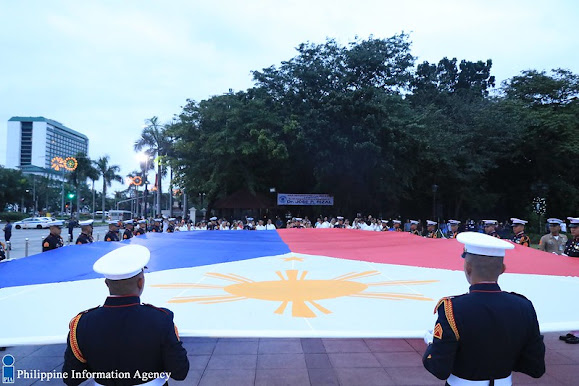QUEZON CITY (PIA) -- In honor of the ongoing National Flag Days, which are observed from May 28 to June 12, Civil Service Commission (CSC) Chairperson Karlo Nograles has called upon civil servants to embrace patriotism by showing unwavering respect for the Philippine flag.
Chairperson Nograles reminded government officials and employees of their sworn oath to adhere to the eight norms of conduct mandated under Republic Act (R.A.) No. 6713, also known as the Code of Conduct and Ethical Standards for Public Officials and Employees. These norms include the principles of "nationalism and patriotism."
"Bilang mga kawani ng gobyerno, ugaliin po nating ipakita ang paggalang sa watawat hindi lang dahil sa ating sinumpaang tungkulin kundi dahil sa marubdob na pagmamahal sa bansa," Chair Nograles said.
Furthermore, Chair Nograles emphasized the importance of complying with the provisions of R.A. No. 8491, commonly referred to as the Flag and Heraldic Code of the Philippines. This law mandates that the flag, anthem, and other national symbols must be revered and respected at all times, as they embody the nation's ideals, traditions, and principles of sovereignty and national solidarity.
The legislation specifies that the flag should be appropriately displayed and raised. Additionally, it outlines the conduct of flag ceremonies during official or civic events, emphasizing the need for a simple and dignified approach. Attendees are expected to stand in attention when the first note of the national anthem is played, placing their right palms over their chests. The National Anthem should be sung correctly, followed by the recitation of the Panunumpa sa Watawat.
Moreover, R.A. No. 8491 strictly prohibits mutilating, trampling, or engaging in any act that dishonors or ridicules the flag. It also forbids using the flag as drapery, tablecloth, or covering for various objects, as well as wearing it as a costume or uniform. The law prohibits adding any word, figure, mark, picture, design, drawing, advertisement, or imprint on the flag. It further explicitly forbids printing, painting, or attaching representations of the flag on items such as handkerchiefs, napkins, cushions, and merchandise.
"May we always aspire to serve as examples for our stakeholders and fellow Filipinos in the way that we honor the flag not only during flag ceremonies but in and out of the office. Remember that patriotism is not just a requirement for civil servants. It is a virtue that leads to a common goal – national development," stated Chairperson Nograles.
Former President Diosdado Macapagal, through Proclamation No. 374, designated May 28 as National Flag Day. This date commemorates the historic occasion in 1898 when the national flag was first raised in Alapan, Imus, Cavite, after the Philippine Revolutionary Army achieved victory in the Battle of Alapan, symbolizing the defeat of the Spanish forces.
In 1998, Republic Act No. 6713 modified the previous law, expanding the observance of Flag Days from May 28 to June 12 of each year. During this period, all offices, agencies, and instrumentalities of government, business establishments, learning institutions, and private homes are encouraged to proudly display the Philippine flag.
As National Flag Days continue, the CSC hopes that civil servants and citizens alike will demonstrate their deep love for the country by respecting and upholding the dignity of the Philippine flag, thus fostering (CSC / PIA-NCR)





